
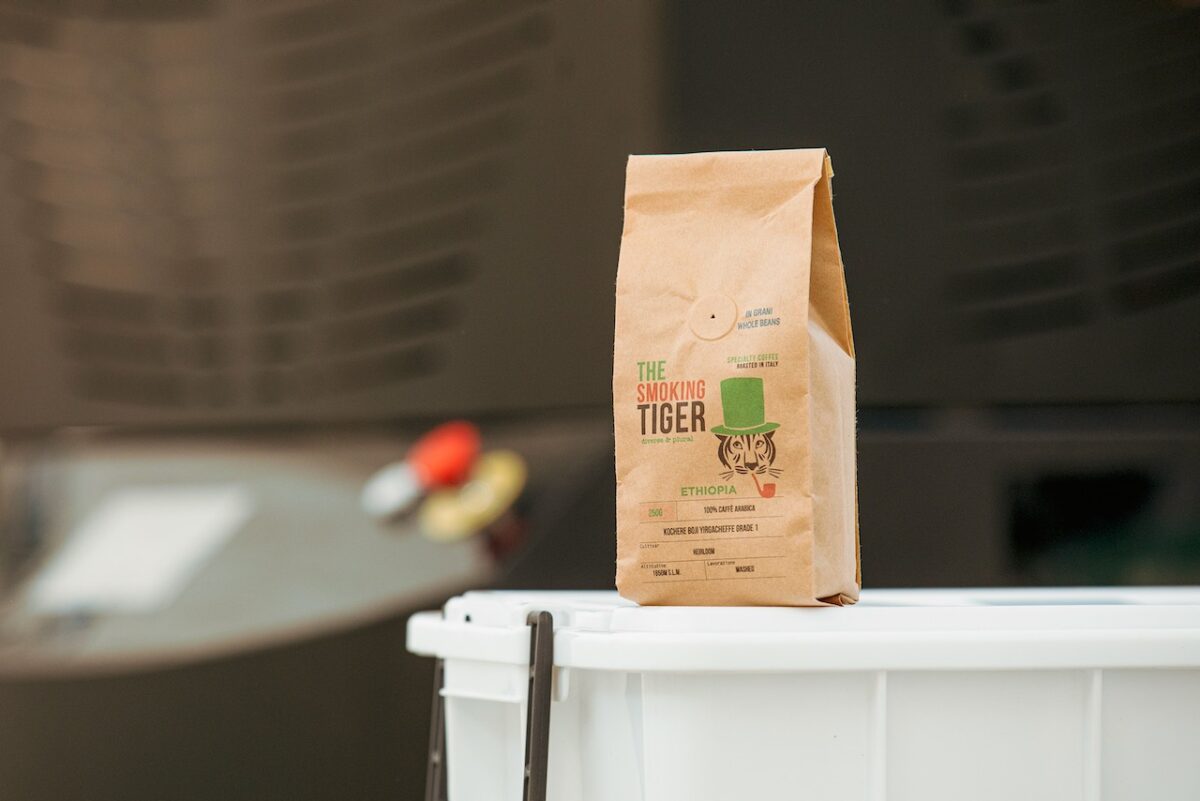
Ancona, central Italy, is home to about 100,000 people. The Smoking Tiger was founded here in November 2020, along the coast of the Adriatic Sea. The company roasts specialty coffee and sells it online.
Antonio Tombolini started the business at 60 years old, driven by a desire to introduce people all over the world to the true value of products. He used to run an e-commerce business in the early days of the internet, selling gourmet foods and luxury wines. Today, he says there is an ideal market in the specialty coffee industry. During our interviews, we delved deeper into his philosophy.
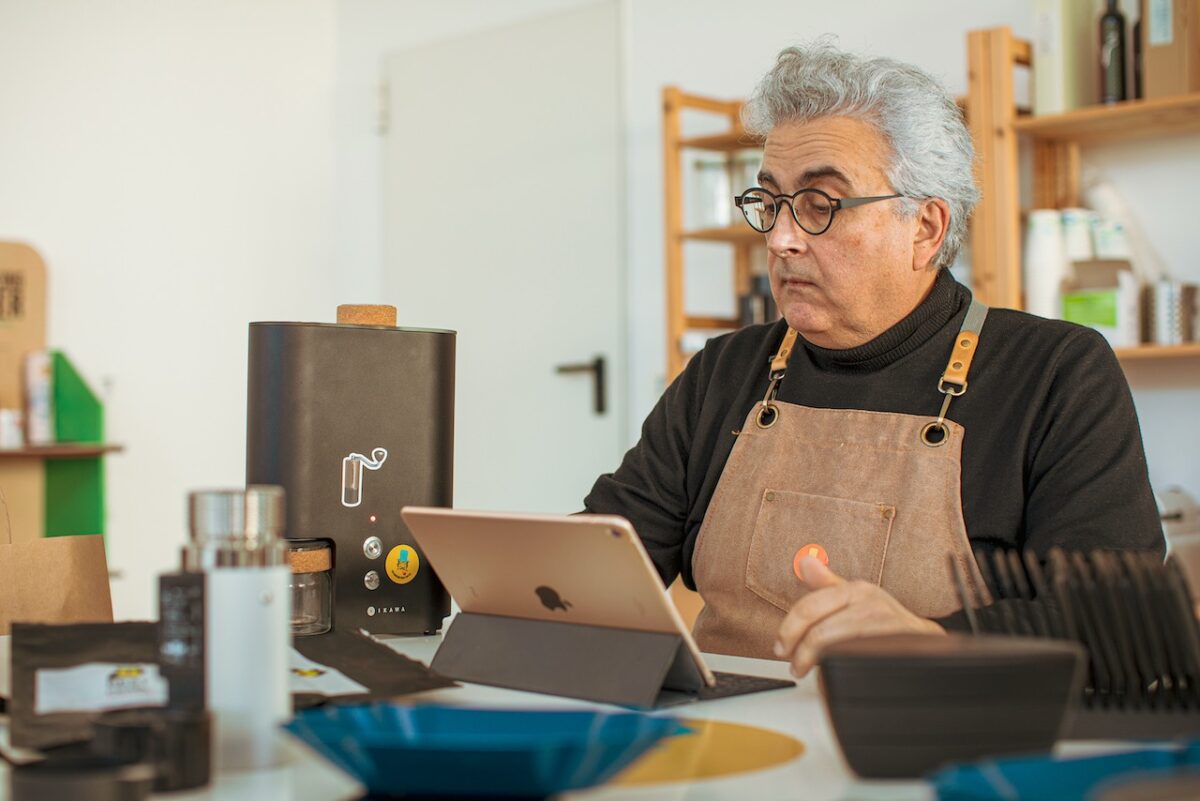
Food experiences, delivered to your doorstep
The arrival of the internet came as a great shock to Antonio, whose life, up until 1996, had hardly crossed the digital world. Being able to play chess during a lunch break with people around the world was a pleasant surprise, above all. The internet, and the paradigm shift it brought with it, ushered in the second chapter of his life.
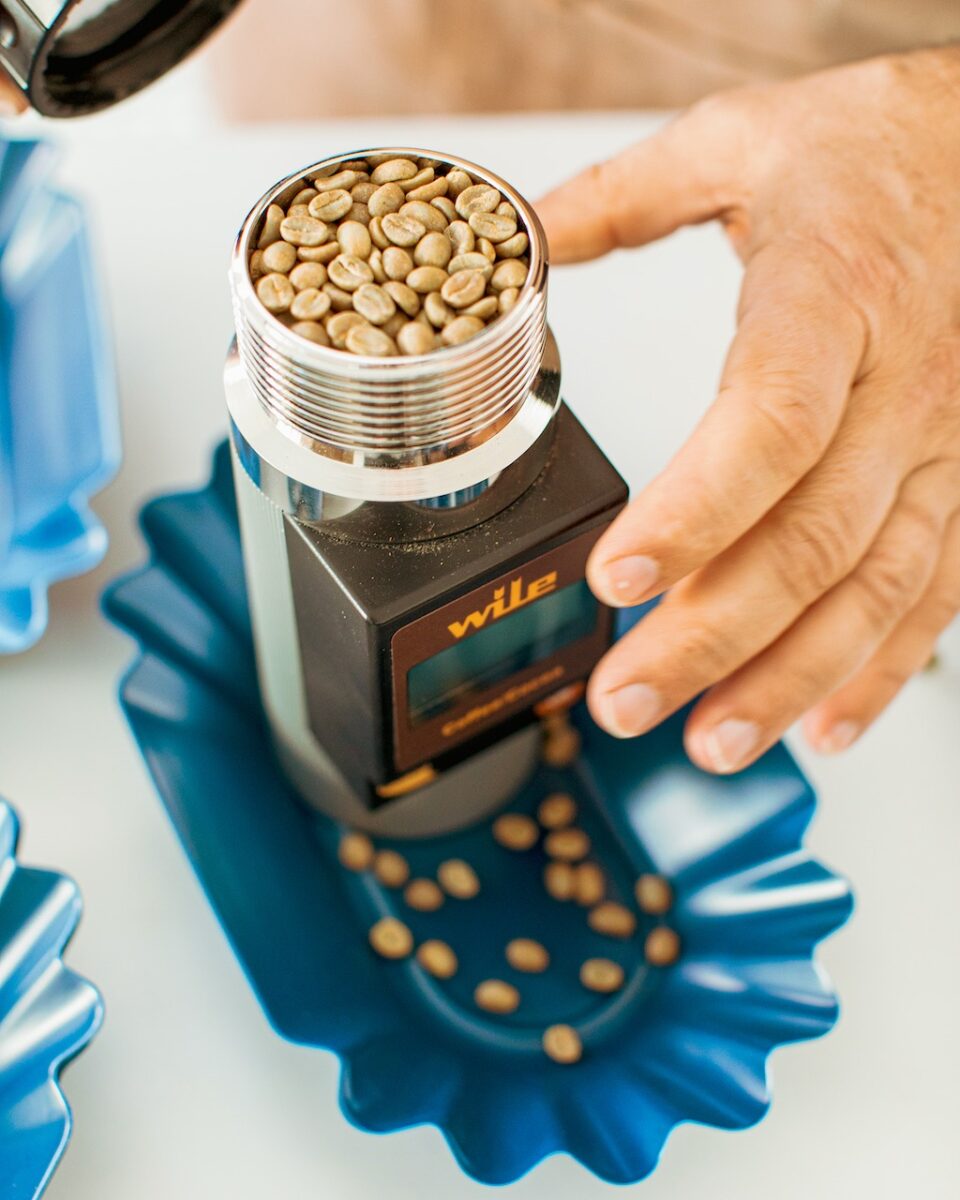
After gaining a doctor’s degree in law in 1986, Antonio joined Poltrona Flau, a long-established international brand that manufactures high-end furniture with traditional, artisanal skills. He was in charge of export.
However, as Antonio traveled across Europe – his main target market – his passion gravitated toward food. And that passion grew only stronger as he got a taste of various local cultures and their characters through culinary experience. When Antonio didn’t have meetings or exhibitions to attend during these business trips, he spent most of his spare time looking for local farmers and wine producers.
Even if you produce good food or good wine, if you stay local, you can’t get the real value your products deserve, Antonio thought. “But by using the internet, maybe I could help them receive a fair value for their work.” This idea prompted him to launch an e-commerce business, “Esperya,” in 1998, when he was 38 years old.
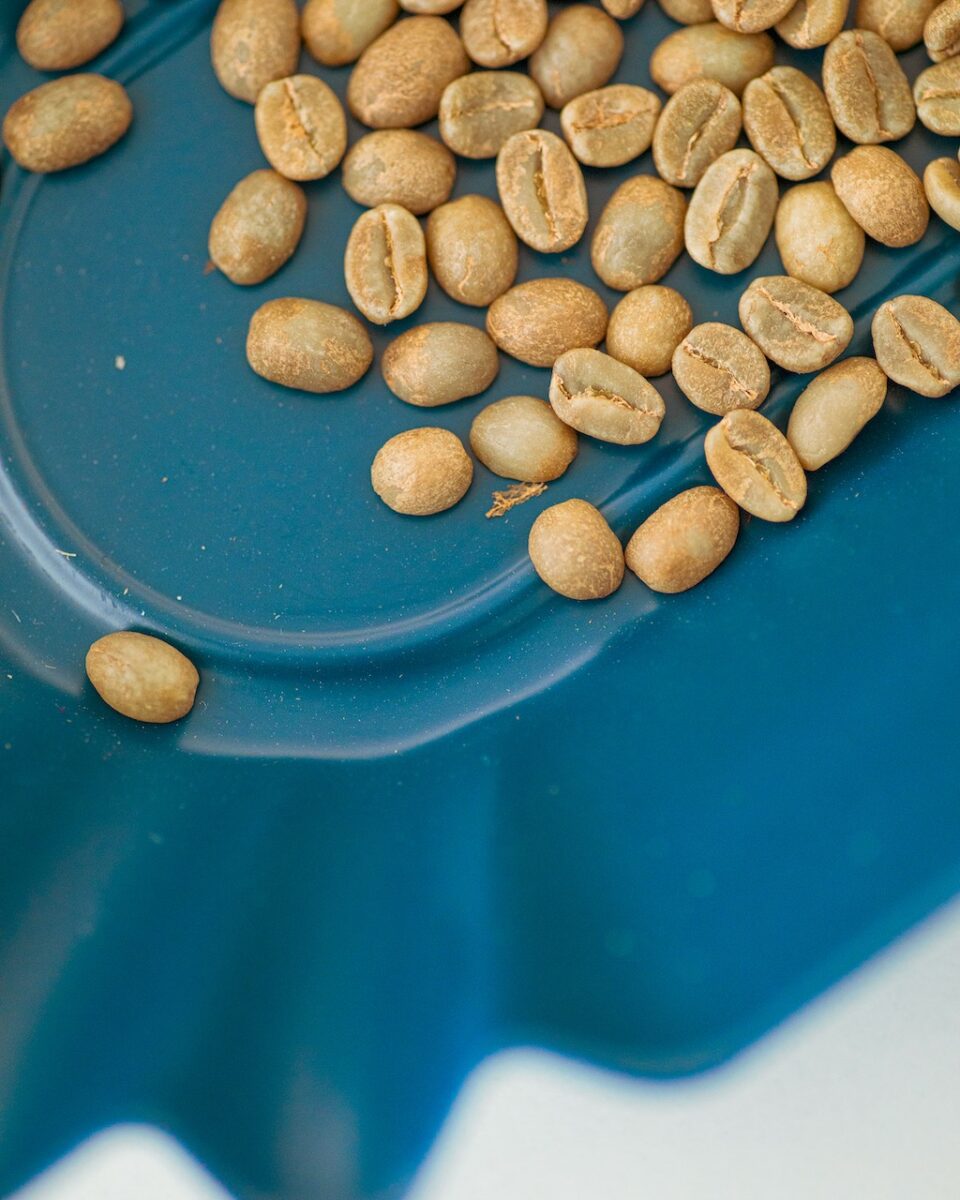
“That was at the dawn of e-commerce. Back then, couriers were yet to provide B to C delivery services. The context was very different from now. I limited my business to the Italian market because of logistical restrictions and transport costs. But the business turned out to be a success.
The key was that I offered Italian food experiences to consumers. I delivered products along with stories behind them, so that people could get real experience of different regions and different cultures at home. Basically, I did the same thing I am doing with coffee now, only that I did it with food and wine.”
Antonio sold the business in 2002 despite steady growth because he received an acquisition proposal that was too good to turn down. That was when the internet was booming, and many large firms were looking for investment opportunities, both in Italy and abroad.

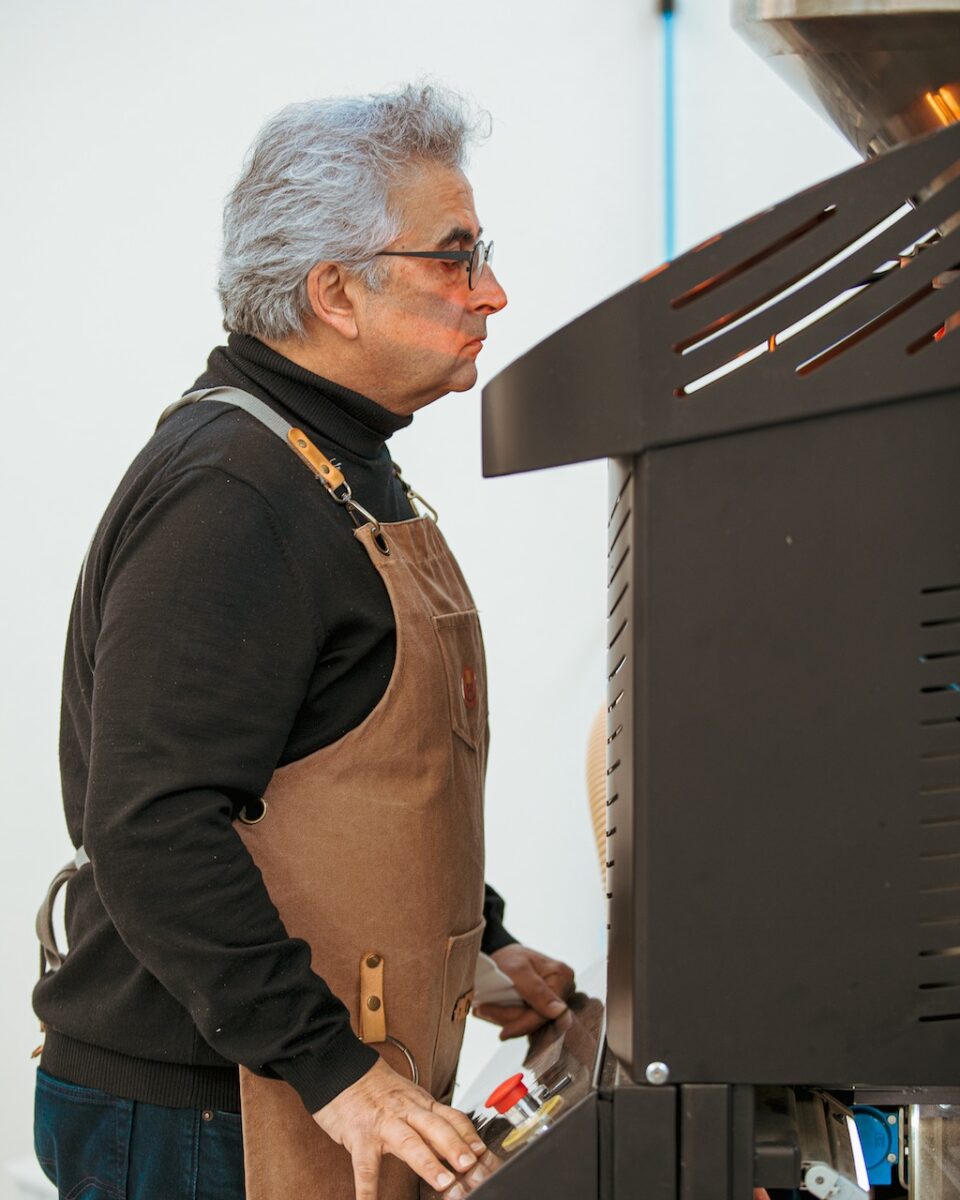
Market is not something to be made
Antonio fell in love with the internet the moment he discovered it. The technology introduced him to a world beyond his life. Before the advent of the internet, Antonio watched with alarm as a wave of mass production and consumption forced different societies into a uniform mold. For him, the internet seemed like something of a vehicle of revolution.
“The market in its original sense is supposed to be a place where people visit, buy and sell things and discover new products. In the era of Renaissance, Italian merchants traveled abroad and brought back spices and silk, things people had never seen, and presented them at markets. People were marveled and impressed with those products, which led them to buy the products.
The market also used to be a place to make friends and spend time with them. It was part of their lives. Buying and selling was merely a part of their relationships, and was even an excuse to meet people and spend a day together.
Unfortunately, the meaning of market changed as mass-produced products began to flood the markets. Before we realized, the market has changed from a place to visit to an action called marketing. And businesses have started to form strategies and plans to sell things.
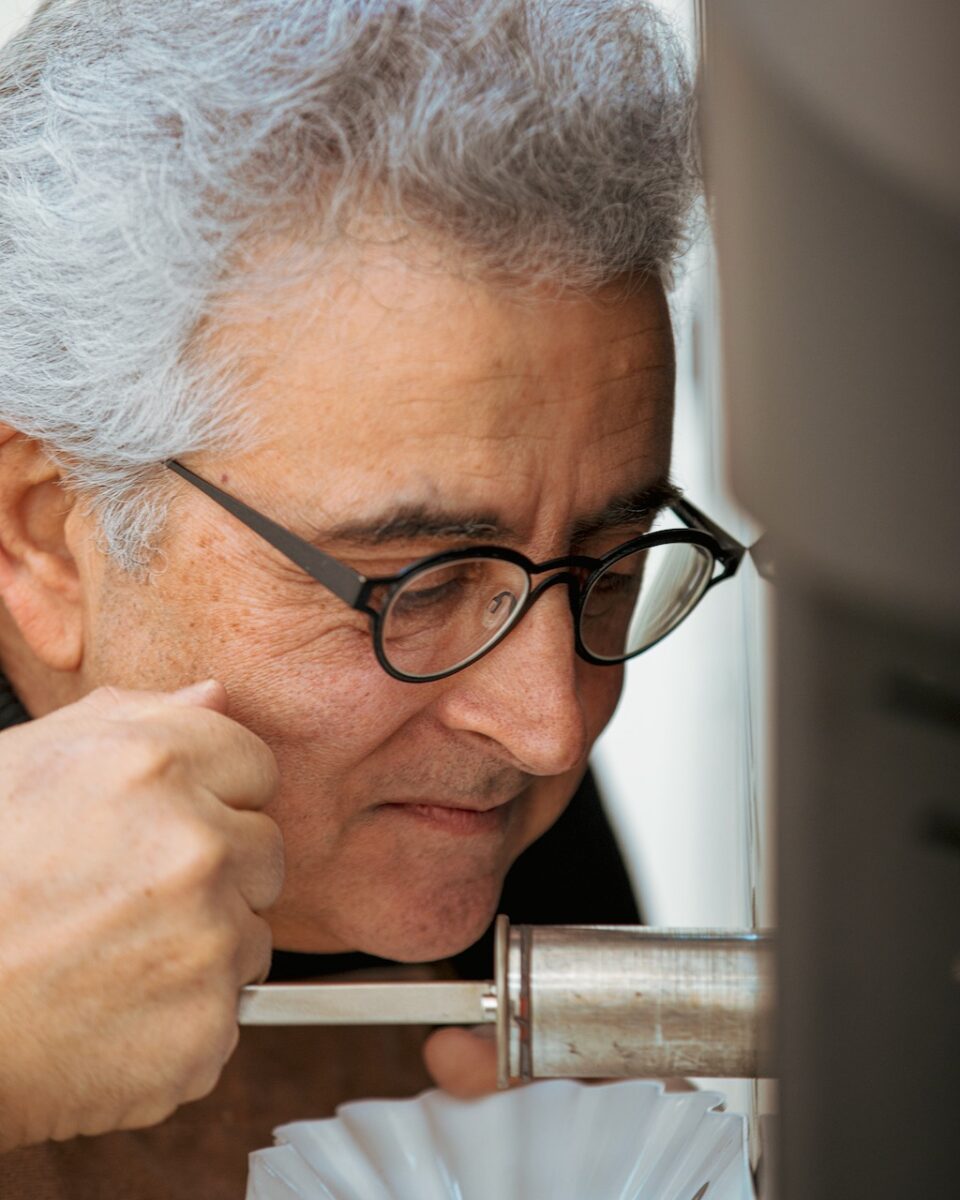
But nowadays, as the internet is more widespread and the need for conversation has grown ever stronger, marketing is almost dead. I believe relationships with people are the most valuable asset in business, though you don’t need to get hung up on how you cultivate relationships.
In my job, for example, it’s obviously important to meet producers in person. I hope to make my next origin visit to Colombia in June 2022. But from a business perspective, I find it more important to fully use the power of the internet and regularly communicate with producers.
Online or offline, my approach to the market is to create a new place myself and cultivate relationships with like-minded producers, roasters, and friends, and build a community with them.
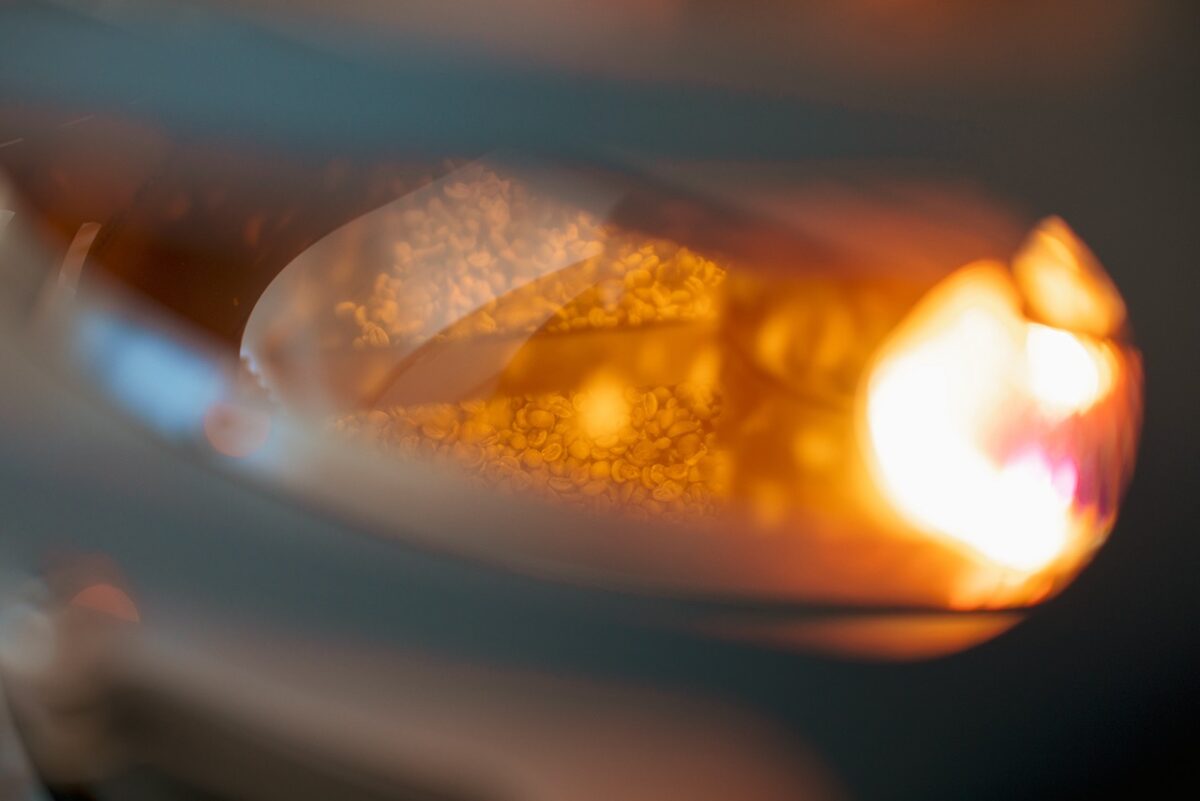
I’m always looking for someone to talk to. As a person who has seen the world before and after the internet, I strongly feel that the level of relationships you can develop online has no comparison to whatever you enjoyed before the internet. Very often, relationships you start cultivating for business reasons online develop into friendships. It’s a real joy to actually meet someone you met online. I want to enjoy the miracle of the internet as best I can.”
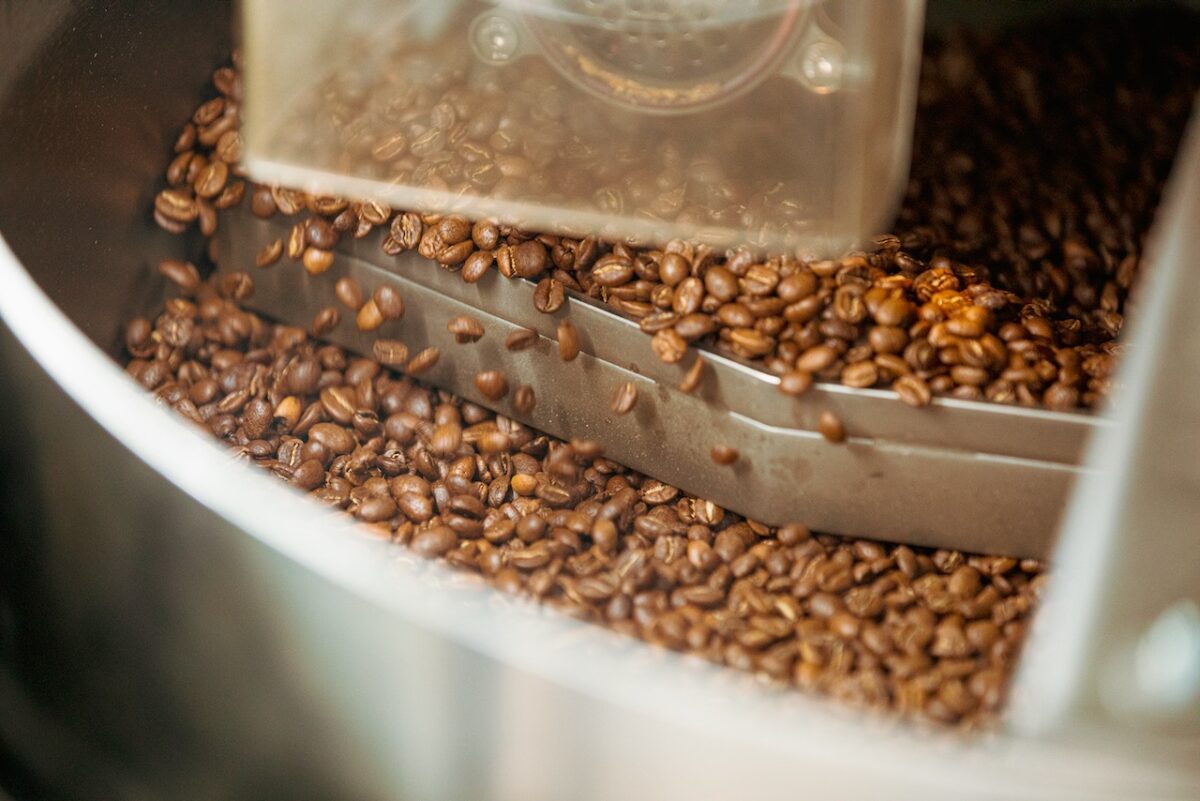
Today, Antonio is preparing to open the first Smoking Tiger cafe as a pilot experiment in the nearby area of Macerata. Yet he says he is “not guided by geography because in this day and age, you can set up business wherever you want.”
“If I can make the cafe work and find good partners, I want to expand it into a chain across the world. That said, our role is simply to provide places and opportunities to enjoy a good coffee. Instead of trying to make our business bigger, I want to be guided by relationships and grow bigger as a natural result.”

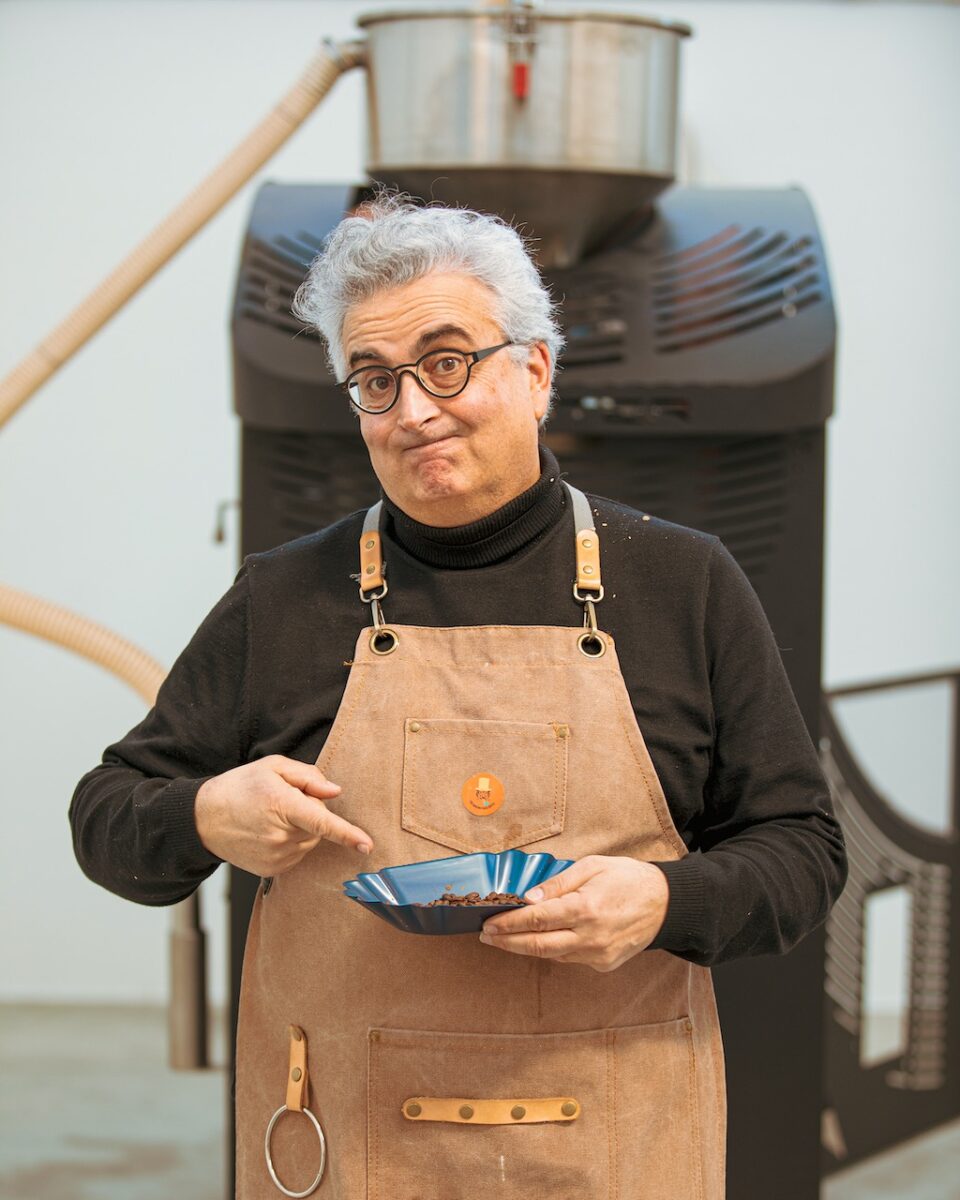
Raw materials mostly determine taste
The root of Antonio’s passion for food traces back to his mother. He remembers always being by her side as a child, watching as she cooked food for the family.
She would make at least two meals every day, for a family of 9, including her husband and seven children. Her work was almost like running a small restaurant. One would imagine that no matter how much she liked cooking, she must have felt tired of it every now and then. However, she didn’t even show a hint of weariness. If anything, every time she was in the kitchen, she tried her best to make food that would surprise the family.
“I watched the harmony of her movements, and her effort to find joy and be creative even in her routine work. There is no doubt she gave me the passion for food. Another thing I learned from her is an attitude to take nothing for granted and try to split things into several elements and find a new perspective.”
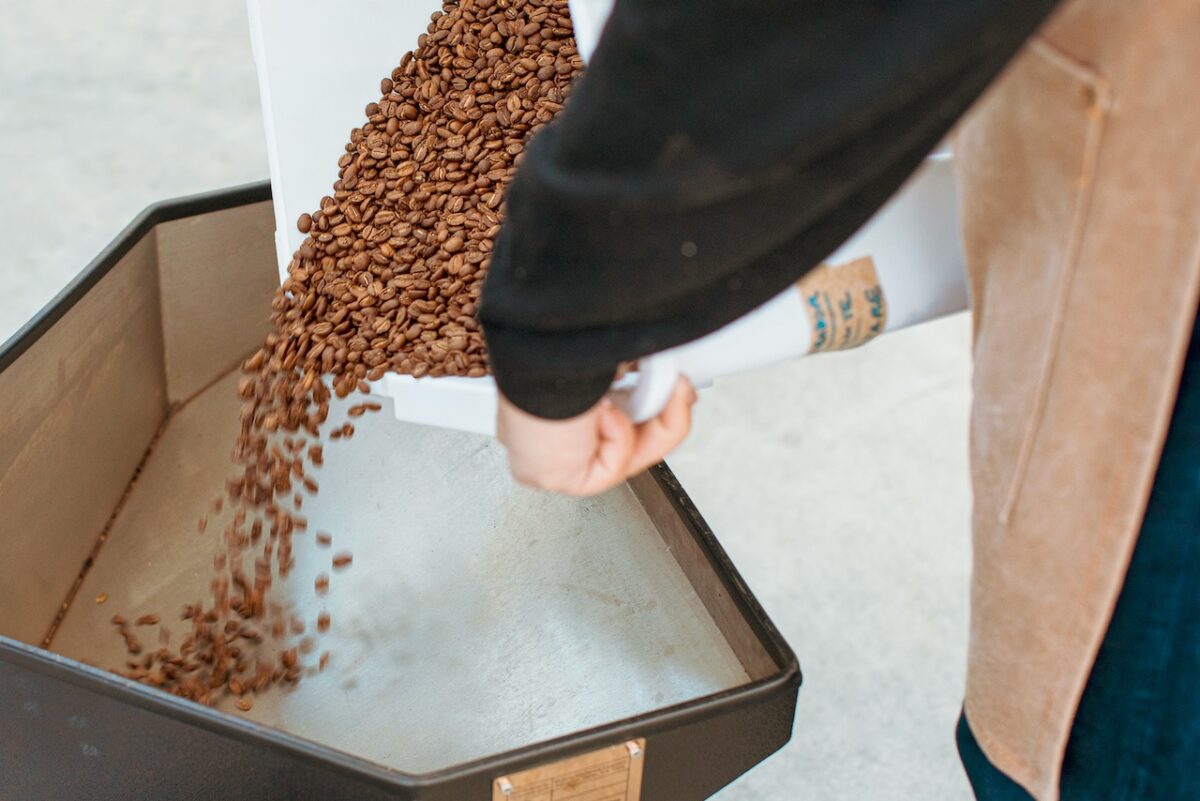
Carrying on the spirit of his mother, who passed away in 2017, Antonio now cooks twice a day for his family. He says he buys olive oil, tomatoes, parmesan cheese and many other things directly from producers he met in his previous job. “You should look at my shopping list,” he says with a playful giggle. For him, diving deeper into coffee was a natural extension of his daily life.
“If you have excellent raw materials, you can cook delicious food. It’s the same with coffee. If you source high-quality green coffee, you can make a delicious cup. Exceptional green coffee is more forgiving even if you do something wrong when roasting. In other words, if you source mediocre green coffee, your coffee can’t be anything more than mediocre. It doesn’t matter whether the world’s best roaster roasts it or you roast it with the most expensive machine.
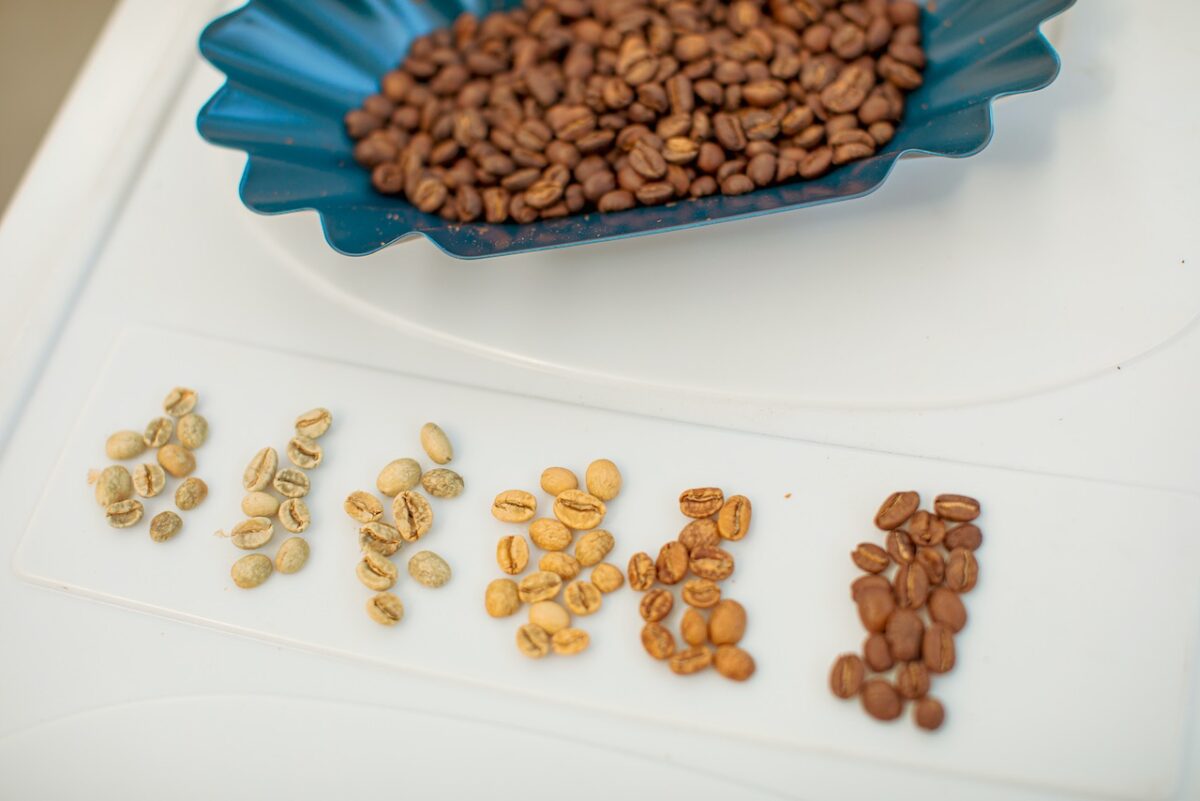
I think roasters have two main jobs. One, sourcing the best coffee. And two, roasting that coffee in the best possible method. If I have to compare the importance of those two main jobs, I put 80% of the importance to sourcing, and 20% to roasting. Roasters and baristas are just transformers. Our role is merely to make our best effort to express the value of coffees, made by the hard work of producers in very tough conditions. Exceptional products are a miracle that comes from interactions between producers, the nature of their terroirs, and their knowledge.
In my humble opinion on the current specialty coffee movement, I think too much emphasis is on baristas and roasters, as illustrated by world championships where they showcase their skills. The stars of the coffee value chain are producers.”

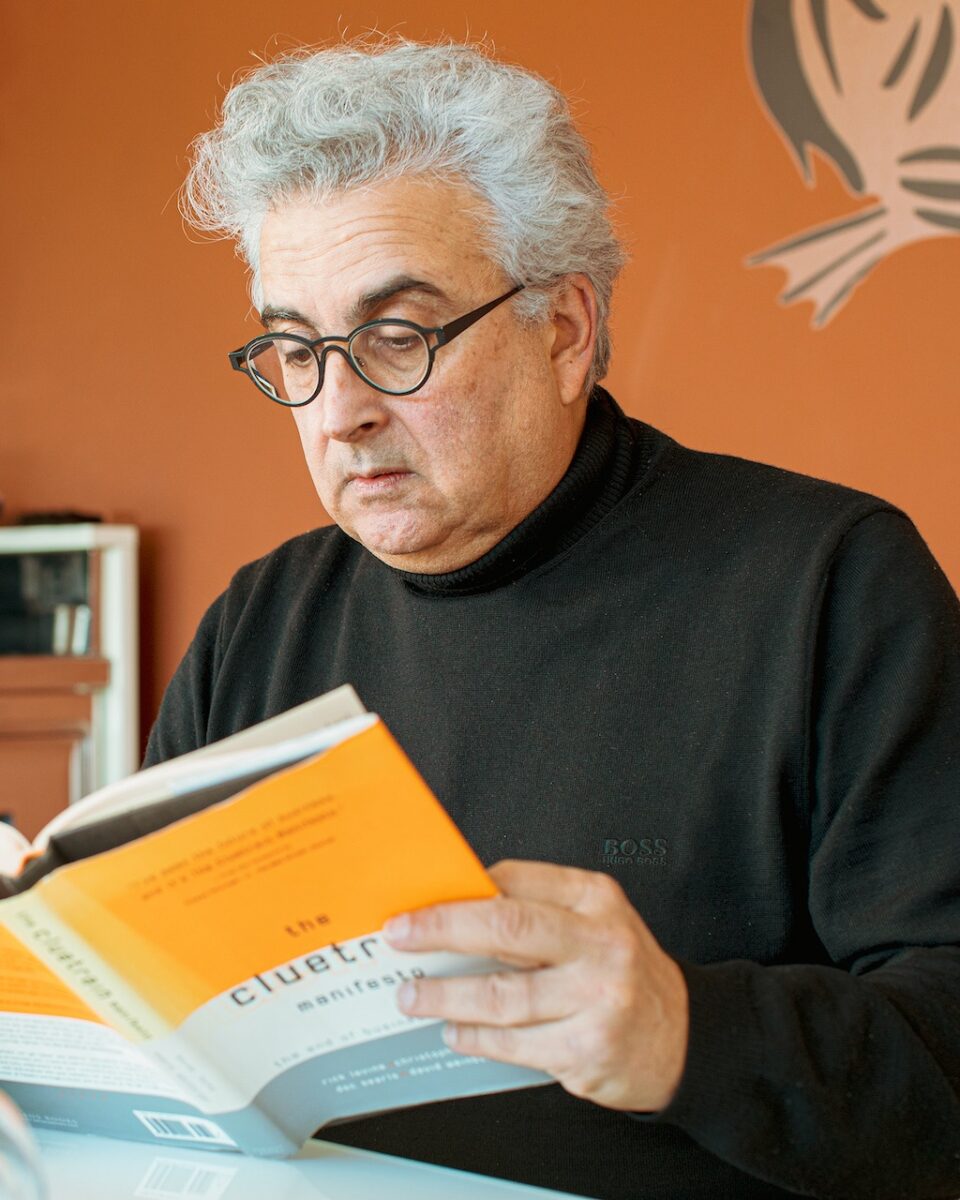
Celebrating diversity
A product, no matter how brandnew at first, may one day become commonplace. When that happens, businesses will race to draw up strategies to survive, and to stand out from the rest. After all, that is how markets work. The burgeoning specialty coffee market is no exception. It will mature one day, setting off a fierce competition for survival.
“The key is diversity. Instead of competing with someone and saying, ‘our coffee is better than others,’ we aim to be different and advertise the diversity. In other words, diversity itself can be your value and your strategy. There is no need for sales techniques or gimmicks.
In specialty coffee, there are different layers of diversity, in terms of origins, varieties, and processing methods as well as roasting and brewing methods. And you also have diversity when pairing coffee with food. It’s such a diverse and astonishing world. It sparks meetings between people and spontaneous conversations, and cultivates relationships. Our message is that diversity is not something to fear, but something to celebrate.”
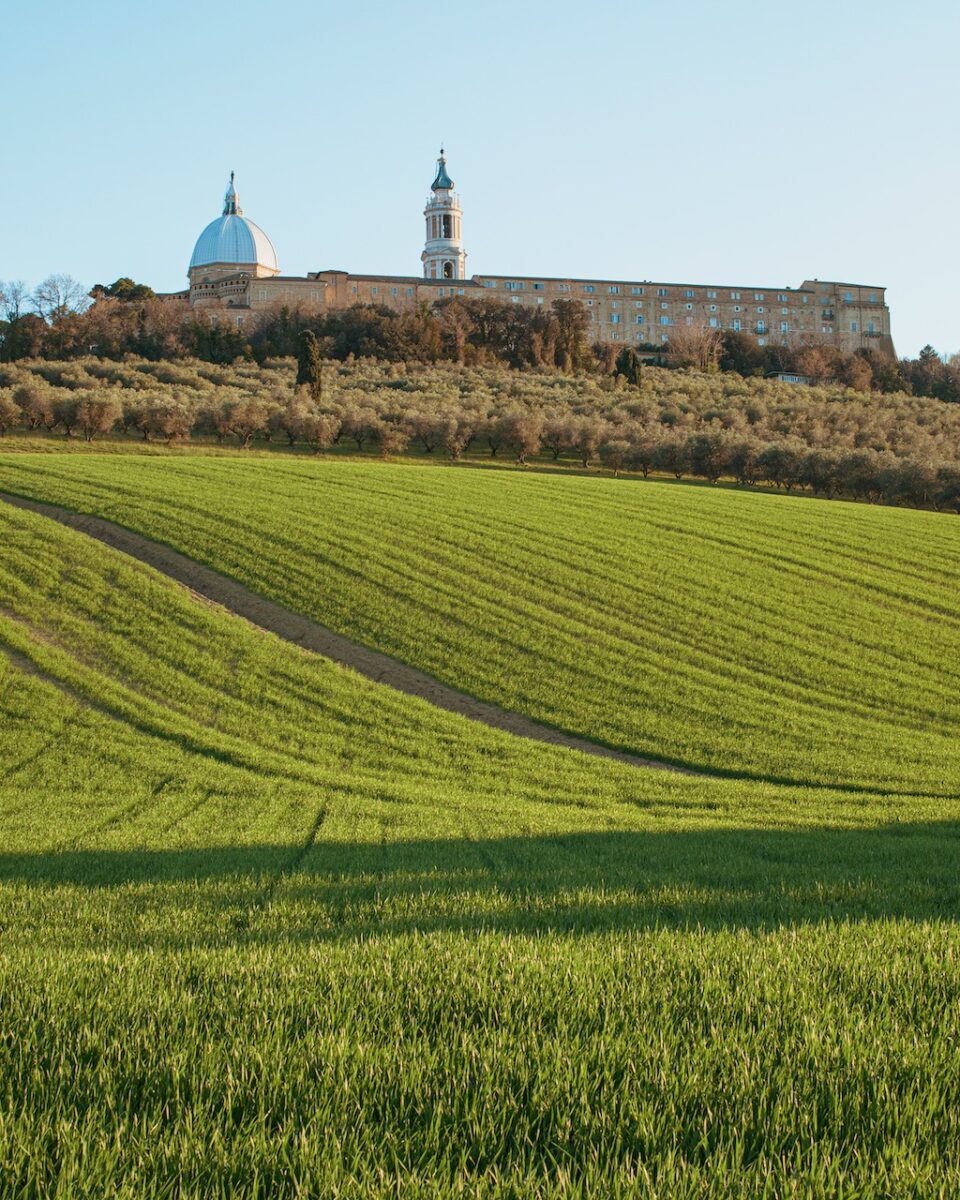
Antonio gained this perspective on diversity from the country of Italy itself.
“Throughout history, Italy has always been a mix of diverse ethnicities, from Greeks to Latins, and Germans to Arabians. The same can be said for the natural landscape. We have Mont Blanc, the highest peak in Europe (4,870 meters). Then, we have some 7,600 kilometers of coastline. In fact, it takes about 10 minutes to drive from where I live to the beach and bathe in the sea, and around 45 minutes to hit a mountain and enjoy skiing. We have diverse environments around us. The same is true for language. Of course, we speak Italian. But it has many dialects. For instance, people in our neighboring town speak a completely different Italian, though it’s only five kilometers from here.
Diversity is even more pronounced when it comes to food. We have more than 500 kinds of cheese and countless types of wine grapes. Even basic foods like pasta al pomodoro have different recipes between Naples, Rome, and Milan.
For us Italians, diversity is something you have to decide what to do with. Diversity could disturb you, or it could be your friend. It’s up to us. I decided to befriend and enjoy it.”
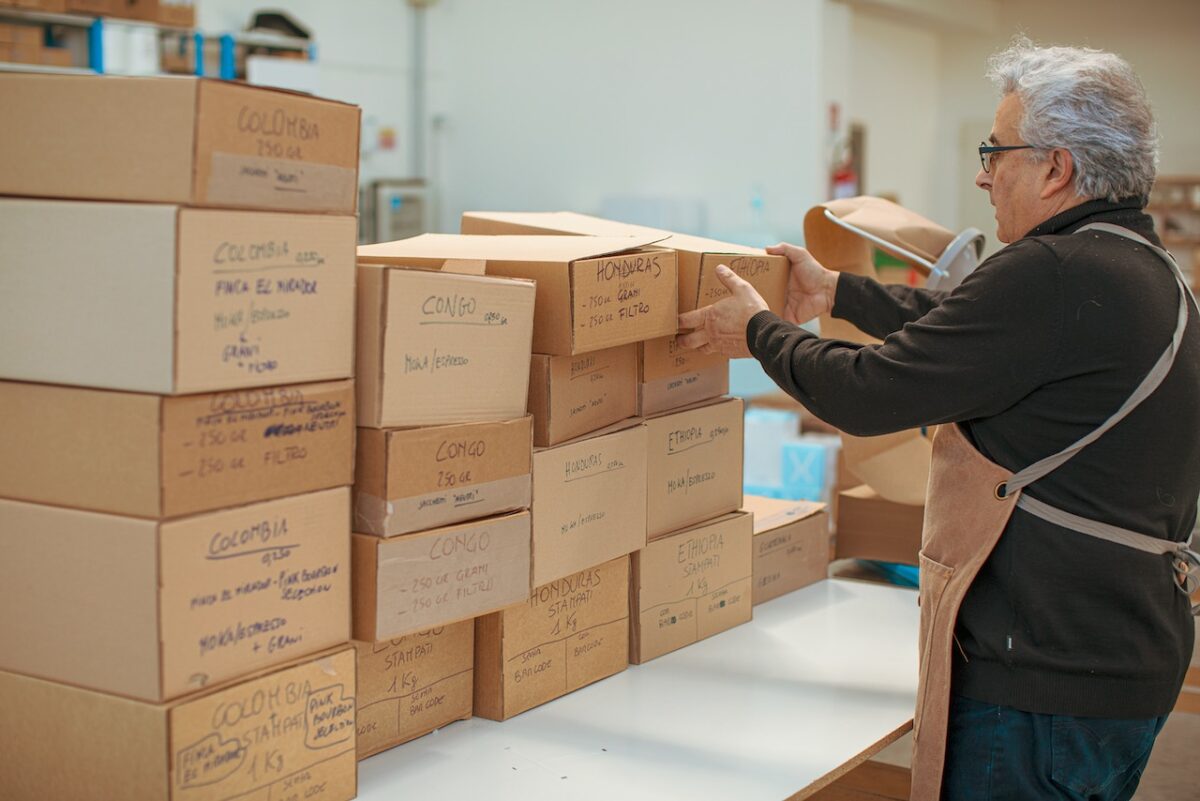
It was only natural for Antonio to be drawn into the specialty coffee world, a treasure trove of diversity.
“95% of people who drink conventional coffee probably don’t know where their coffee is produced by whom. That’s intolerable. I want to change that by evolving the coffee market as a whole through specialty coffee.
It’s an ideal but attainable because the same thing has already happened with wine. People used to choose only between white and red. But nowadays, it’s unthinkable to participate in the wine market unless you are transparent about where your wine is produced, what kind of grapes you use, and how you make it. History shows that specialty coffee can be the new paradigm for the coffee market as a whole in the future.”
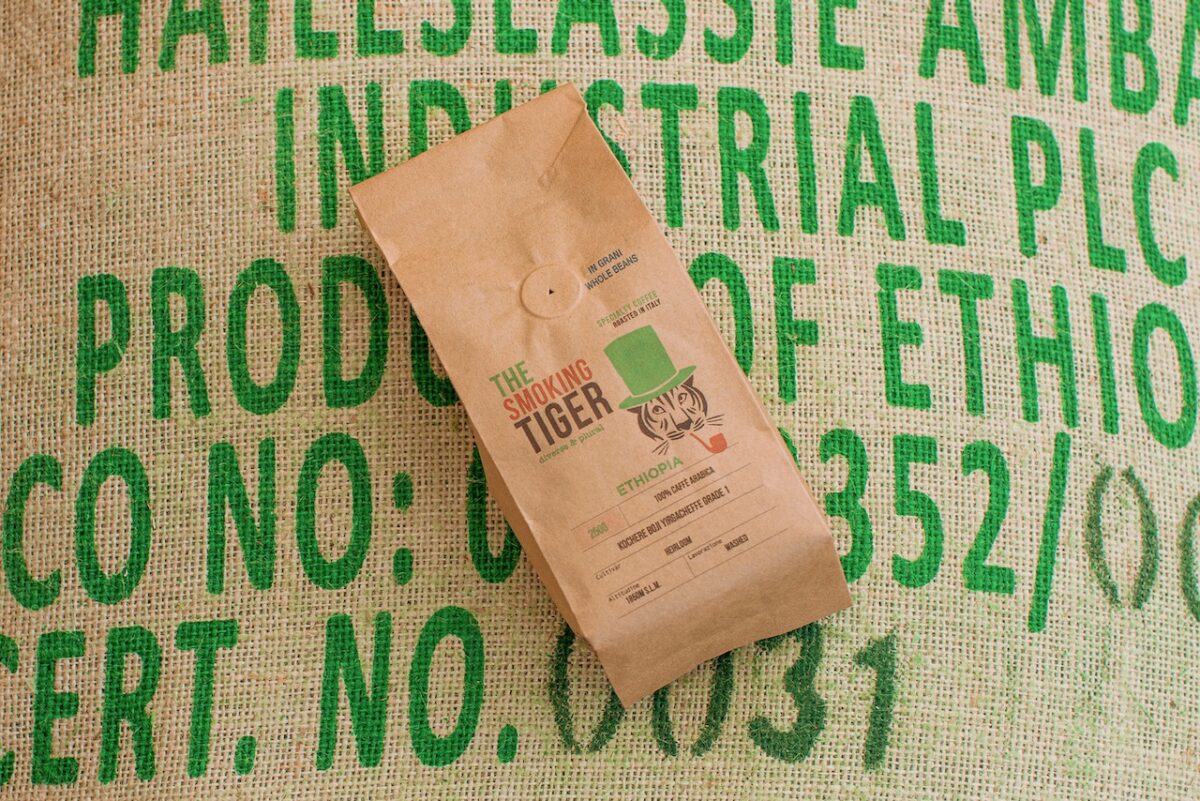
To celebrate diversity is to love differences. For Antonio – born and raised in a country of diversity and a food lover since his early childhood – celebrating diversity and loving differences must be something that came naturally to him, rather than some far-fetched idea he tries to live by. In this era of myriad technologies, perhaps we are living the miracle of infinite diversities.
Originally written in Japanese by Tatsuya Nakamichi
Photos by Jakub Brejdak

MY FAVORITE COFFEE
I feel the happiest when cupping samples of new coffees. I enjoy the pleasure all by myself, or sometimes share it with staff and guests. It is a privilege of roasters to be able to feel the diversity of coffees before anyone else.

The Smoking Tiger
- [Open]
- 10:00~15:00








